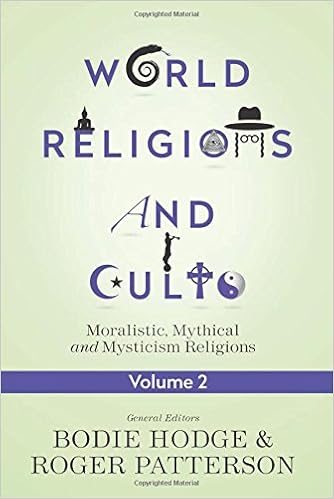Polytheism
Definition
Polytheism refers to any philosophy which claims that there are multiple supreme creators of the universe.
Keywords: Polytheism, Philosophy, Multiple, Gods, Irrational, False, Contradictory, Creation, Deductive, Argument From Reason.
Veracity
Polytheistic claims are false .
Proof
Humans assume that all contradictions are false. Any worldview that does not allow for this assumption to be rationally justified is deductively false.
Premise 1: If anyone is not the author of every aspect of creation, then his authority is insufficient to rationally guarantee the behavior of creation.
Premise 2: Under polytheism, no one is the author of every aspect of creation.
Conclusion: Therefore, under polytheism, no one has the authority to rationally guarantee the behavior of creation.
Humans assume that creation is non-contradictory. Under polytheism, there can ultimately be no reason to hold to this assumption, making it an irrational assumption.
This Argument from Reason therefore demonstrates that polytheism is deductively false.

Gilbert Guttlebocker, Defender of Dragons
Riveting, yet absurd; romantic, yet innocent; Gilbert Guttlebocker, Defender of Dragons is a little Roald Dahl, a little Harry Potter, and a little Chronicles of Narnia, all rolled into one. Timothy McCabe collaborates with the great Benedict Ballyhoot to bring you the novel of the century!

In Printed Form
Along with numerous other authors including Don Landis, Bodie Hodge and Roger Patterson, Timothy McCabe contributes analyses of various world religions and cults in this volume from Master Books.
Other Writings
"Does the biblical god "YHWH" tempt? Because it says in Gen. 22:11 that God tempted Abraham, and in James 1:13 it says "God cannot be tempted with evil, neither tempteth he any man? Which should I believe?"
Here are the verses in question from the NASB: Genesis 22:1 Now it came about after these things, that God tested (KJV - "did tempt") Abraham, and said to him, "Abraham!" And he said, "Here I am." James 1:13 Let no one say when he is tempted, "I am being tempted by God"; for God cannot be tempted by evil, and He Himself does not tempt anyone.
Continue reading...
"The Quran does not say the tree was a tree of knowledge, but the Bible does. The Bible also makes Adam's deed a sin, Quran says not. Why is acquiring knowledge a sin in your book, and why is it so bad all subsequent generations are supposedly damned?"
Genesis 2:16-17 The LORD God commanded the man, saying, "From any tree of the garden you may eat freely; but from the tree of the knowledge of good and evil you shall not eat, for in the day that you eat from it you will surely die." The tree was indeed a tree of knowledge according to the Bible. However, it was not just any kind of knowledge -- it was, specifically, "knowledge of good and evil".
Continue reading...
"Hell seems designed to punish disobedience and perceived immorality. Would you agree that acting in a certain manner simply because you fear punishment is cowardly and an invalid motivator?"
The coward is the individual who, out of fear, refuses to do what is right. A coward is NOT someone who, out of fear, CHOOSES to do what is right. That man is not being cowardly -- rather, he is being prudent and sensible. Fear is an excellent and perfectly valid motivator toward good works. God uses it frequently and He instructs us, at times, to do likewise. The Book of Proverbs is filled with examples of the wisdom of a proper fear of God...
Continue reading...